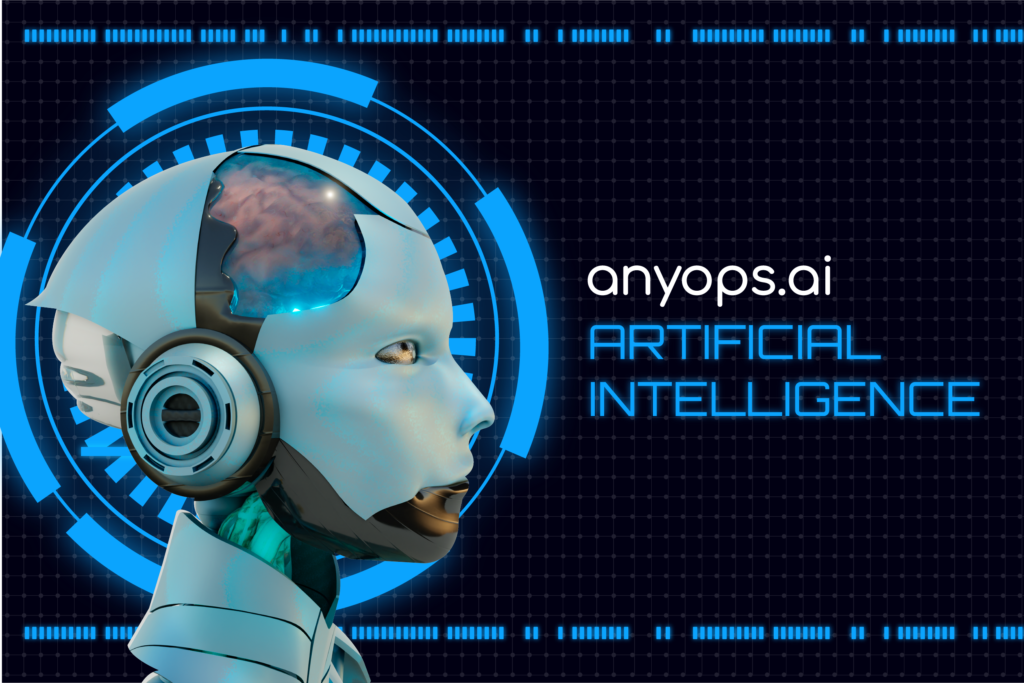AI as a Service
Unlocking growth with scalable AI solutions
Revolutionizing Business and Technology Through Scalable Artificial Intelligence Solutions

Anyops.ai is transforming the business and technology landscape by providing scalable, cost-effective, and accessible AI solutions. By offering AI as a Service (AIaaS), Anyops.ai enables organizations to innovate and remain competitive in a rapidly advancing AI-driven world. While challenges such as data security, integration with existing systems, and ethical considerations persist, the benefits of AIaaS far outweigh the risks, making it an essential component of modern business strategies. As AI technology continues to evolve, AIaaS will increasingly influence the future of industries globally.
Anyops.ai facilitates the adoption of advanced AI capabilities by offering on-demand access similar to other “as-a-service” models, such as Software as a Service (SaaS) and Infrastructure as a Service (IaaS). AIaaS allows companies to leverage AI without the substantial investments in infrastructure, expertise, and resources typically needed to develop and maintain AI systems.
Machine Learning as a Service (MLaaS): MLaaS provides tools for building, training, and deploying machine learning models. It includes pre-trained models, APIs, and development environments, simplifying the integration of machine learning into applications.
Natural Language Processing (NLP) as a Service: NLP services enable businesses to integrate advanced language processing capabilities, such as sentiment analysis, translation, and chatbots, into their products. These services are crucial for enhancing customer interactions and automating text-based tasks.
Computer Vision as a Service: This component helps applications interpret and understand visual data, offering tools for image recognition, video analysis, and facial recognition—vital for industries like retail, security, and healthcare.
Robotic Process Automation (RPA) as a Service: RPA as a Service allows organizations to automate repetitive tasks using AI-powered bots, reducing human error, increasing efficiency, and freeing up employees for more complex, value-added activities.
Cost Efficiency: AIaaS eliminates the need for upfront investments in AI infrastructure and expertise, allowing companies to access powerful AI tools on a pay-as-you-go basis, making it affordable for businesses of all sizes.
Scalability: AIaaS platforms are designed to scale according to business needs, whether processing small datasets or analyzing large amounts of data, with providers dynamically allocating resources to meet demand.
Accessibility and Flexibility: AIaaS democratizes access to advanced AI technologies, enabling even small businesses to leverage AI for competitive advantage. It offers a range of services that can be easily integrated into existing systems, providing flexibility in how businesses apply AI.
Accelerated Innovation: By outsourcing AI capabilities, businesses can focus on innovation and strategic growth. AIaaS providers continually update and enhance their offerings, ensuring users always have access to the latest AI advancements.
Risk Mitigation: AIaaS reduces the risks associated with AI adoption, allowing companies to experiment with AI solutions without long-term commitments. Providers manage maintenance, updates, and compliance, easing the burden on users.
Data Security and Privacy: With AIaaS, sensitive data is often processed by third-party providers. Ensuring data security and compliance with regulations, such as GDPR, is crucial for businesses adopting AIaaS.
Integration with Legacy Systems: Integrating AIaaS with existing IT infrastructure can be challenging, especially for companies with legacy systems. Careful planning and execution are necessary for seamless integration.
Dependence on Vendors: Relying on external AI providers can create dependencies, potentially making it difficult to switch vendors or adapt to changes in service offerings. Companies must choose AIaaS providers carefully and consider long-term partnerships.
Ethical and Bias Concerns: AI models can sometimes produce biased or unethical outcomes. Businesses must work closely with AIaaS providers to ensure fairness and transparency in AI decision-making processes.


